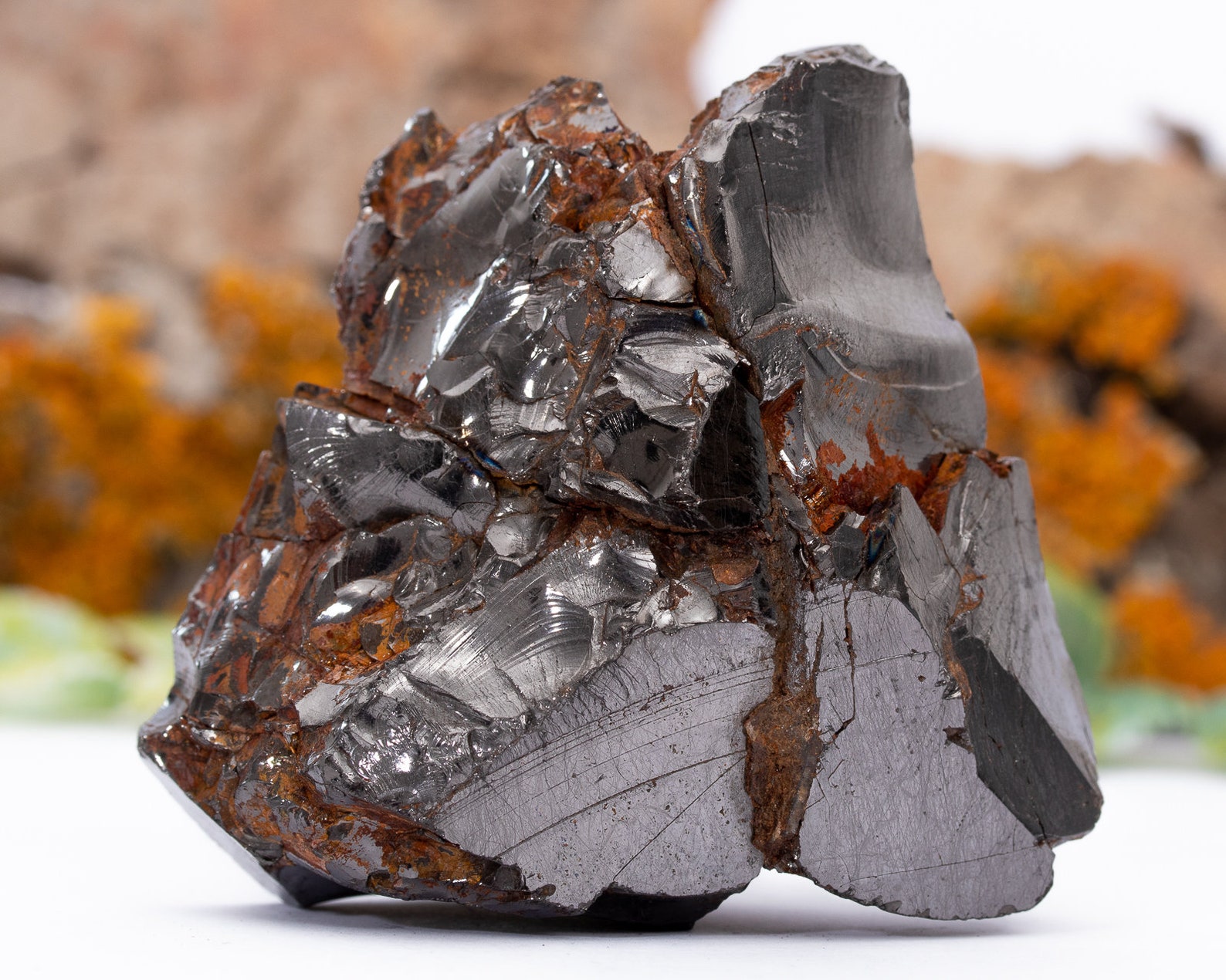Shungite is a Stone That Has Anti-Inflammatory Qualities In addition to Grounding Effects

Shungite is a mineraloid of black color discovered throughout the Karelia region of Russia. It is a mineral deposit which is located near the town of Shunga. The mineral has been found in various locations and is believed to be an effective anti-inflammatory drug. It has also been discovered to possess the ability to ground and also contains heavy metals like zinc and copper.
Origin story
Shungite is a carbon mineral. It is unique in its chemical composition that makes it different from other minerals and rocks. Some of its natural properties include fullerenes, which encapsulate water.
It is believed to have formed about two billion years ago. The mineral was discovered within the Karelian region of Russia. Actually, the term "shungite" is derived from the village of Shun'ga.
In the 17th and 18th centuries the mineral had a reputation for healing. People in the area used it for treating ailments as well as a disinfectant. Tsar Peter the Great realized its advantages and encouraged its use.
When the Russian army took over Sweden Shungite was a crucial part of their victory. Several soldiers were poisoned by the ore they were processing but the shungite water healed the entire army.
Composition
Shungite is an amorphous carbon-carbon rock that has a unique chemical composition. It's the result the interplay of individual elements, which form complex organometallic complexes. In addition, it has an extremely high electrical and thermal reactivity.
Several investigations have taken place regarding the shungite. They have focused on shungite's sorption properties antioxidant properties, as well as the therapeutic properties.
The mineral shungite is a carbon amorphous substance that exhibits an extremely high degree of reactivity in electrical and thermal processes. This is because of the presence of the carbon atoms that are hybridized. A unique spherical shape is created by the atoms of the hybridized carbon. Among the shungite's constituents are A12O3, FeO, MgO, and TiO2.
The mineral shungite is an alotropic metastable carbon form that is distinguished by a extremely adsorbent capability and significant reactivity at high temperatures. Additionally, it is known to be a source of the mineral REE.
Anti-inflammatory properties

Shungite has anti-inflammatory properties that offer a wide range of applications. Its antioxidant properties counteract superoxide production, reduce ROS/RNS levels and also suppress inflammatory cytokine response. These properties can aid in protecting skin from UVB irradiation, and could be beneficial to sufferers of oxidative stress disorders.
Alongside its antioxidant benefits Shungite protects cells from damaging electromagnetic fields. This suggests that it may be beneficial in cancer treatment. Moreover, it can also act like an antihistamine. While more studies are needed to verify these findings, the study highlights the potential of shungite to combat inflammation and oxidative diseases.
In 2003, a scientific study was carried out to evaluate the effect of shungite in rats. The results showed that shungite reduced production of ROS and lowered the inflammatory cytokine level and also increased ROS-scavenging enzymes. Furthermore, it restored the inflammatory cytokine imbalance induced by UV radiation.
Heavy metals released by Shungite samples

The shungite samples released several heavy metals into water. Zinc, lead, cadmium, copper and arsenic were detected. These elements were found in drinking water before and after contact with shungite.
Shungite is a carbon-rich natural mineral. It has a high capacity for adsorption and is unique in its chemical composition. A study was conducted to examine the sorption properties of shungite against heavy metals. In addition to that the effects of shungite's sulfate on the absorption of artificially elevated copper ions in drinking water were also examined.
The retention of Cu(II) at an initial concentration of 2,500 mg/L has been examined. The results showed that shungite has good adsorption properties towards copper. It was found that the characteristics of the copper absorbed diminish after 21 days of exposure.
Grounding properties
Shungite is a black mineral, is said to possess amazing properties for grounding. It's an unusual stone with lots of potential in the scientific and health fields.
Apart from its grounding properties, shungite can also be used as a natural water purifier. It has been proved to remove harmful bacteria and other toxins from water.
Shungite has a high carbon content, which suggests that it was a result of biological processes that occurred in the oceans of the early world. It is a potent natural healer. Utilizing shungite in this way is a practice that has been used in Russia for hundreds of years.
Proteck'd Clothing of shungite is its ability to absorb and deflect electromagnetic pollution. This can help people stay healthy and free from harmful electromagnetic radiation.
Metaphysical nature
Shungite is a stone from the past with numerous benefits. It is a highly grounded, protective, as well as healing stone. It is also beneficial for electromagnetic fields and the physical body. According to the purpose, a person can expect various experiences when using the stone.
One of the most significant benefits of the stone are it's anti-inflammatory qualities. Fullerenes, the carbon-based molecules which are found in the stone, are an antioxidant and have important antiviral and antibacterial properties.
Another advantage to Shungite is its capacity enhance other metaphysical abilities. It is believed that it is an effective shield against harmful electromagnetic fields which helps to shield your body from harmful effects.
